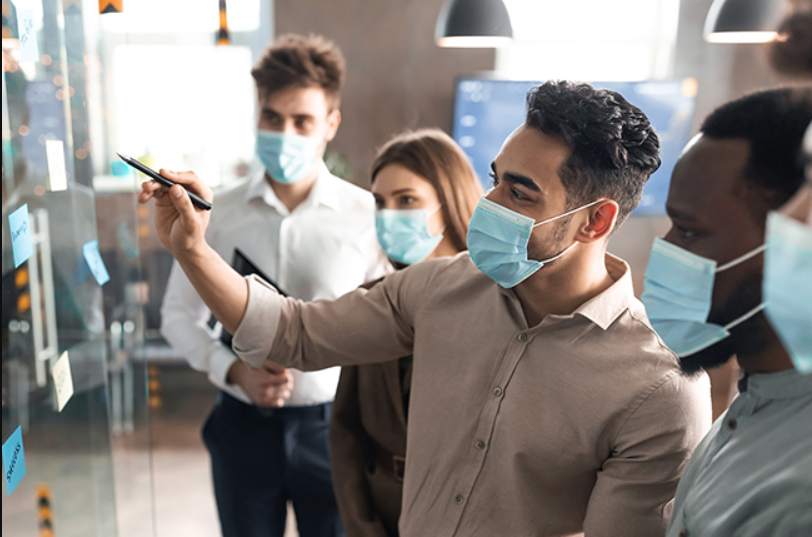Transforming Education to Advance Healthcare Provider Competency
Celebrating the 10th Anniversary of the Healthcare Knowledge Engineering & Translation Laboratory

In an effort to transform physician learning at Mass General Brigham, Robert J. Birnbaum, MD, PhD, launched the Healthcare Knowledge Engineering & Translation Laboratory (KT-Lab) in 2012.
Dr. Birnbaum, vice president of Continuing Professional Development and Implementation Science at Mass General Brigham, brings a psychiatrist's and neuroscientist's perspective on traditional approaches to lifelong training in medicine. He bemoans the industry's long history of investing in training that is not evidence based, up to date or individualized to learner needs—and thus fails to enhance quality of care.
"The lab focuses on knowledge translation," he says. "We're working on better ways to get knowledge into clinicians' brains so that all those innovations coming out of research—drugs, devices, models of care—are utilized in day-to-day clinical practice faster."
Impossible to Keep Up With Information Deluge
In addition to the lack of dissemination of previously validated data, the growing volume of emerging evidence-based data accessible to clinicians has rendered the old-fashioned method of teaching—what Dr. Birnbaum calls "sage on the stage"—woefully inadequate. A 2000 study in The Journal of General Internal Medicine found that a new journal article was published every 26 seconds and keeping up with them, even within one's own field, would require reading dozens to hundreds of articles a day. The pace has only quickened since then.
"We are advancing knowledge faster than our ability to put that knowledge into practice in a systematized way that supports standardization of care," says Steven Lindseth, a consultant to Mass General Brigham. "Whatever you learned in medical school—how to diagnose a disease, what drug to prescribe—becomes irrelevant quickly."
Ultimately, patients pay the price for the current system's shortfalls. A 2013 literature review in the Journal of Patient Safety estimated that 400,000 premature deaths a year are associated with preventable harm to patients, while a 2016 study published in The BMJ pointed to medical error as the third-leading cause of death in the United States. These suboptimal patient outcomes are derived from both systems issues (e.g., poor communication) and a lack of adequate competency maintenance.
"Studies show that about 50% of patients receive evidence-based care," Dr. Birnbaum says. "That means that as a patient, it may be essentially a flip of the coin as to whether you are receiving the appropriate standard of care."
The KT-Lab is striving to dramatically improve those odds.
Accelerating Innovation in Patient Care Through 'Precision Education'
Since entering the medical field in the late-1980s, Dr. Birnbaum has been frustrated by how long it takes for research discoveries to enter the clinical environment. His vision for the KT-Lab is to accelerate that process and serve as a catalyst for positive change in patient care.
Dr. Birnbaum sees the KT-Lab as the next step in the evolution of healthcare education at Mass General Brigham. Continuing medical education, the legacy approach, is training that is heavily reliant on lectures or webinars. Continuing professional development, the current state, considers a broad clinical context (e.g., through interactive formats) and seeks to optimize clinical outcomes.
In contrast, the KT-Lab emphasizes knowledge engineering—i.e., all the technical, scientific and social aspects involved in building, maintaining and using knowledge-based systems. Its focus goes beyond clinical outcomes to improve cost-effectiveness and accelerate the adoption of innovation throughout the system.
At the heart of the KT-Lab's work is leveraging learning analytics to achieve "precision education." Dr. Birnbaum and his colleagues are exploring how to customize the delivery of information to fit each learner's needs and capabilities. "Instead of having people spend more time getting educated," Lindseth says, "we find ways to have them spend less time."
The KT-Lab team incorporates basic principles of how the brain learns to maximize storage, retention, retrieval and utilization of information. They also harness the latest technology, including artificial intelligence, to iteratively modify learning for each individual.
Making Knowledge Actionable
Partnering with industry to expand its capabilities is central to the KT-Lab strategy. For example, the team is collaborating with one technology startup on using heat mapping to customize education content to an individual provider's baseline knowledge and information processing biases.
The KT-Lab is also partnering with another tech startup to incorporate gamification into learning. This involves introducing game-like elements (e.g., giving feedback on progress, comparing results with those of other providers) to increase provider adoption and engagement.
As Lindseth notes, the KT-Lab is aiming to make an ever-evolving body of medical knowledge actionable. One part of the solution involves improving training; another entails presenting the knowledge in the form of clinical decision supports.
"We're putting new pathways and other manifestations of this knowledge into the clinical workflow," Lindseth says. "Clinicians are using software all the time. When it's time to decide on a treatment, we don't want them to have to recall what they learned in medical school, which is probably irrelevant anyway. Clinicians are overwhelmed, so if we can make their job easier and reduce their cognitive load, that's a good thing."
A Relentless Pursuit of Innovation in Education
Previous education grants allowed the KT-Lab to implement knowledge engineering interventions in therapeutic areas such as infectious disease, diabetes management, and traumatic brain injury and agitation. Current areas of focus include ensuring safe opioid prescribing practices, management of children born to opioid-addicted mothers and updating providers about the cellular processes governing immune regulation undergirding the management of rheumatoid arthritis, ulcerative colitis and COVID-19.
Looking ahead to the KT-Lab's next 10 years, Dr. Birnbaum is committed to sparking more breakthroughs to advance healthcare provider competency.
"As an academic medical center, yes, it is vitally important that we train the next generation of doctors. But if there's no real-time standardization of state-of-the-art care, that's not enough," he says. "That's why we need to be discovering and implementing innovations in education, just as we do with new drugs, devices, therapeutics and diagnostics."